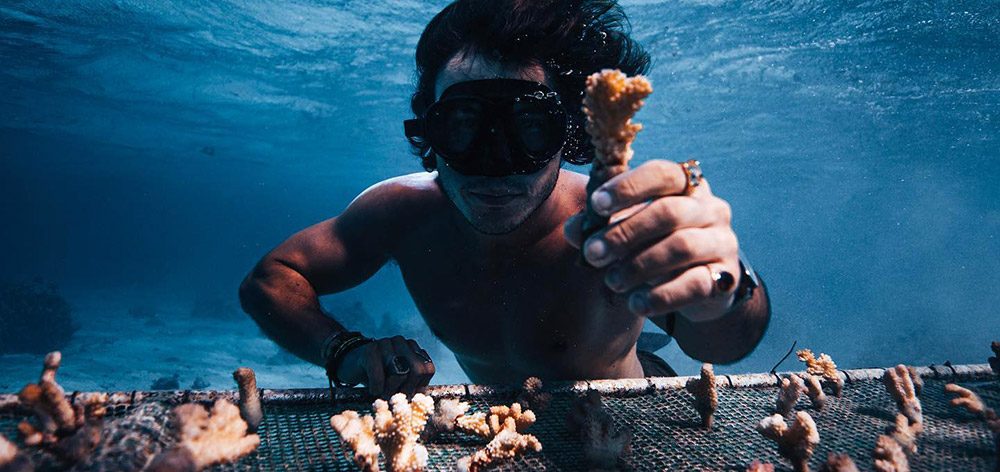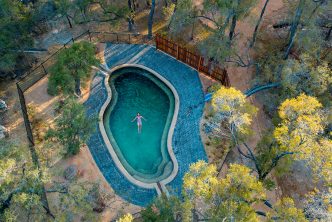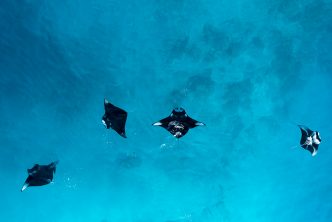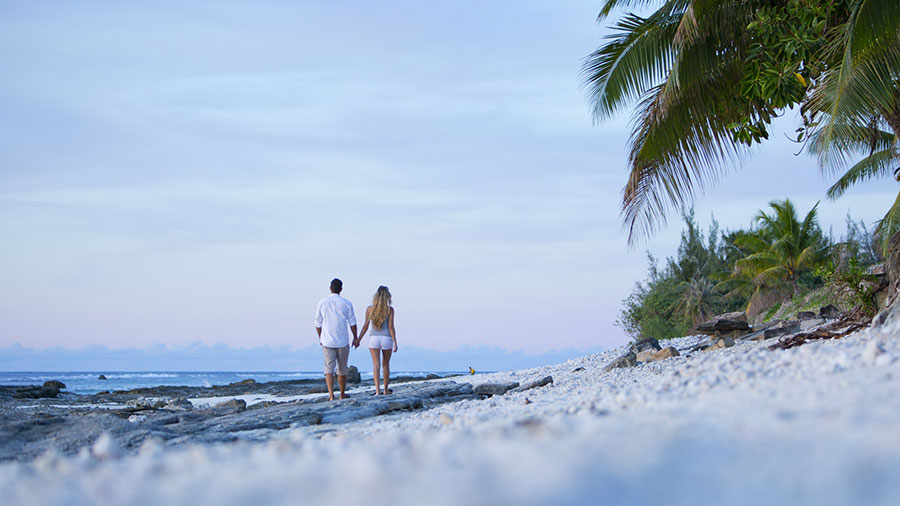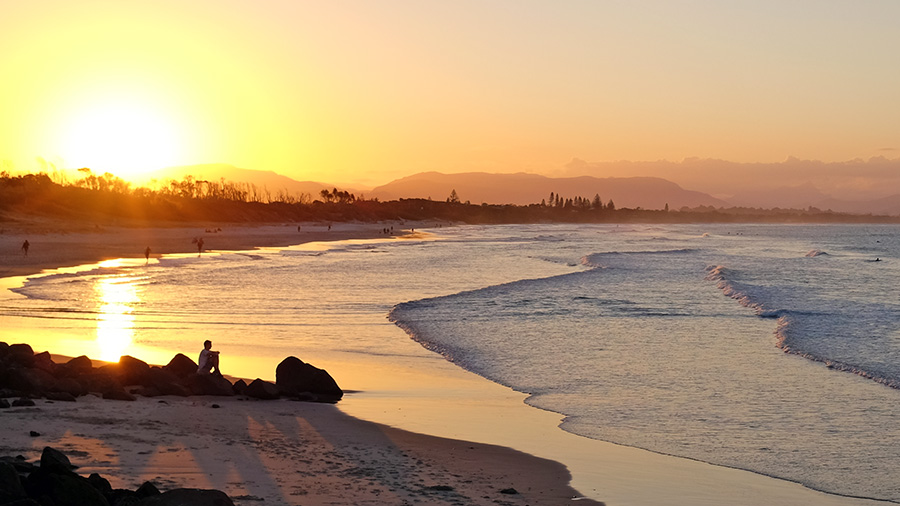Cast your mind back to when you were 18 years old. What were you up to? Chances are it wasn’t starting an organisation dedicated to the preservation and replanting of coral reefs. But then, not everyone is like Titouan Bernicot – founder of Tahiti’s Coral Gardeners.
Growing up on a small atoll in the middle of the South Pacific Ocean, Bernicot developed a passion for the ocean from an early age. Surfing at dawn, diving after breakfast. However, after witnessing the heartbreaking degradation of his home reef, he decided to do something about it – and the idea for the Coral Gardeners was borne.
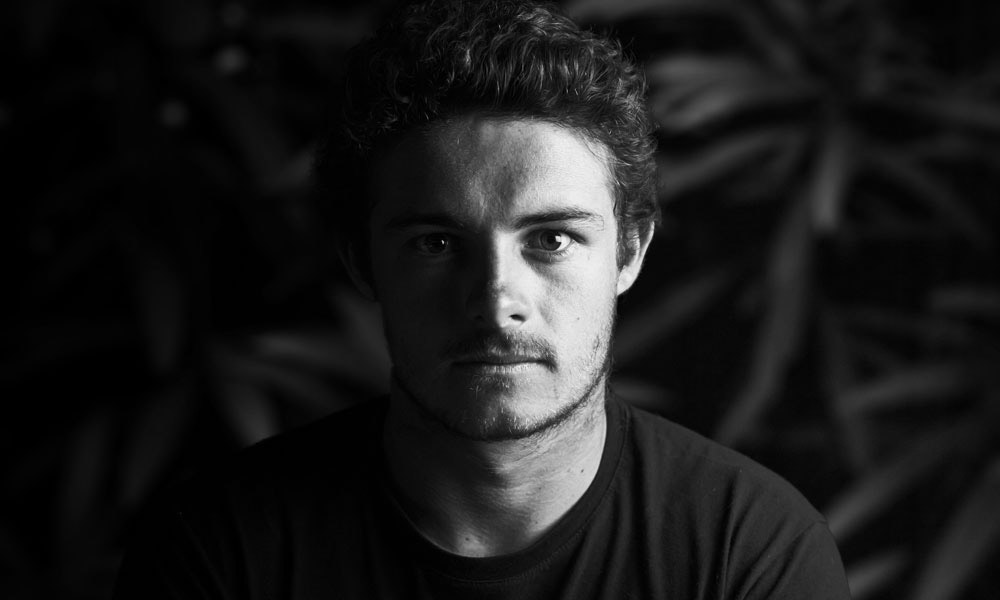
In 2017 Bernicot and his friends launched the Coral Gardeners with a mission to grow and plant resilient corals to restore dying reefs and bring life back to the ocean.
Since then, the team has expanded to more than 20 members, with a passionate global movement of half a million people all committing to help them save the reefs. So far Coral Gardeners have planted over 15,700 corals around the island Moorea in French Polynesia.
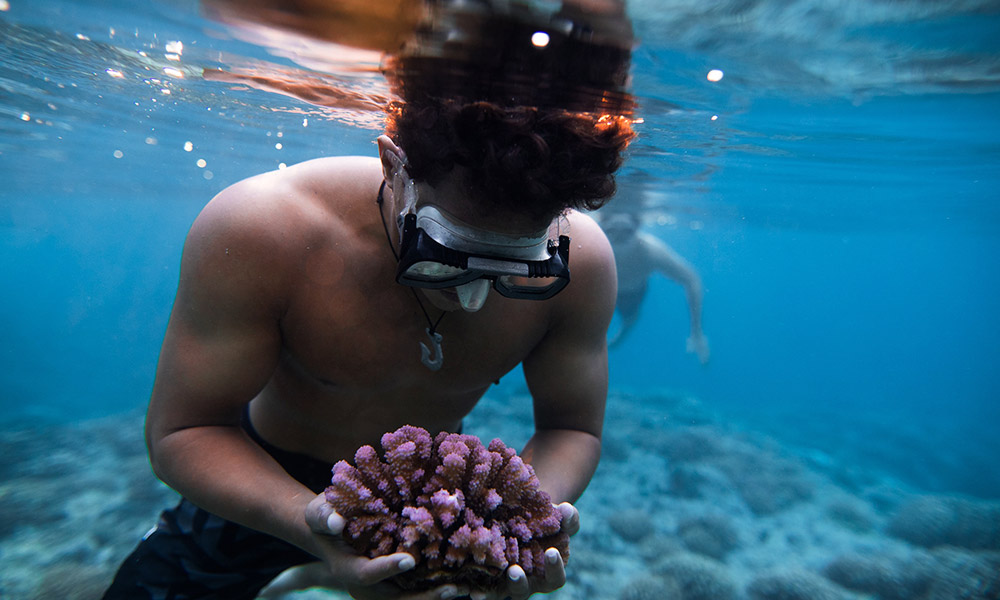
We recently asked Bernicot to tell us a little more about the amazing project, its origins, and why it’s so important that humanity all bands together to grow and protect coral reefs.
For the unfamiliar, what is coral gardening and how does it work?
Coral reefs are considered one of the most vulnerable ecosystems to climate change, which is why we’ve worked hard on finding a method that is focusing on corals’ resilience.
Our technique involves trimming fragments of a healthy and resistant coral colony, placing them in our nurseries where they will grow and once they are mature enough we will plant them onto damaged reefs where they will grow and rebuild a reef. We grow species we discovered to be more resistant to heatwaves and bleaching events than others, we aptly call them super corals.
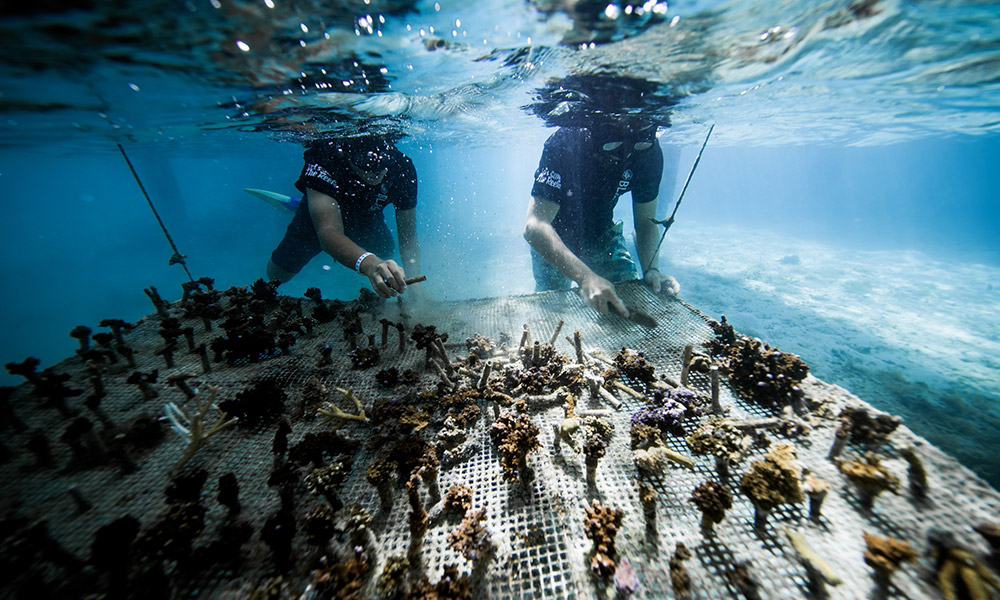
Education is a key part of your project. Why is it so important we protect and grow our reefs?
Protecting the reef is incredibly important, as it’s vital to the survival and livelihood of millions of marine creatures and people. One-quarter of marine life call the coral reef their home, 50% of the oxygen we breathe comes from the ocean and 500 million people around the globe directly rely on the reef for food, income, coastal protection and more.
We believe that raising awareness is key to inspire change across all generations and nationalities – to create a movement of ocean advocates to help our cause.
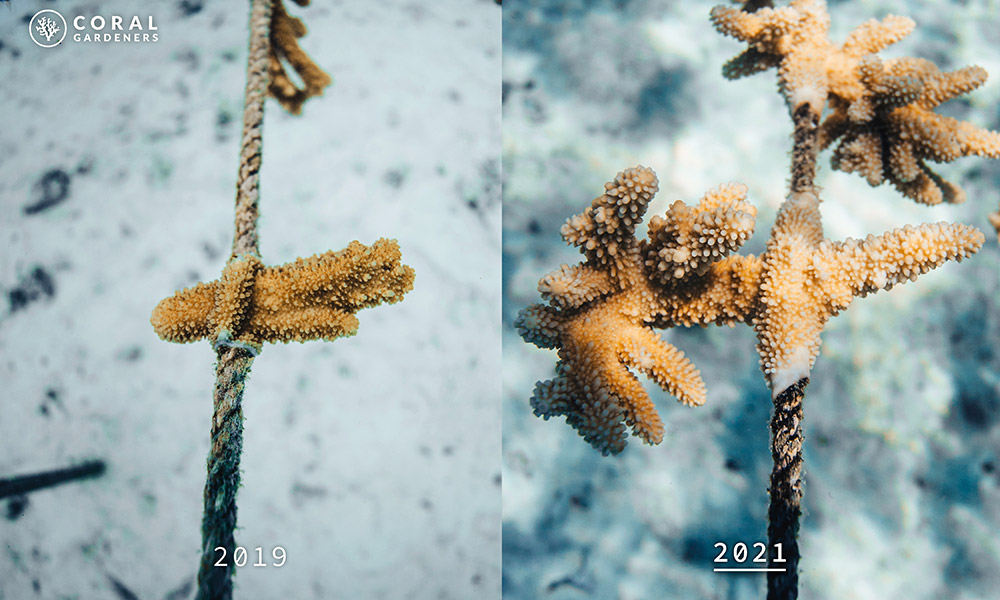
It’s great that your efforts are continuing despite the global upheaval. What are some of the achievements you’re most proud of so far?
I am very proud of my team and what we have accomplished together. We have a great team spirit, we work hard, and it just feels good to have the right people helping you to get closer to your vision.
Something I am particularly proud of is our actual reef restoration program. It hasn’t always been easy to find the right methods. When we started, we didn’t have any knowledge in the field, and we learned so much. It was a process of trial and error, but now I am very satisfied with the method we are using with super corals as it’s resilient-based and focuses on climate change adaptation. The way we monitor our efforts is also very clear and structured. We are already seeing interesting results and that is encouraging.
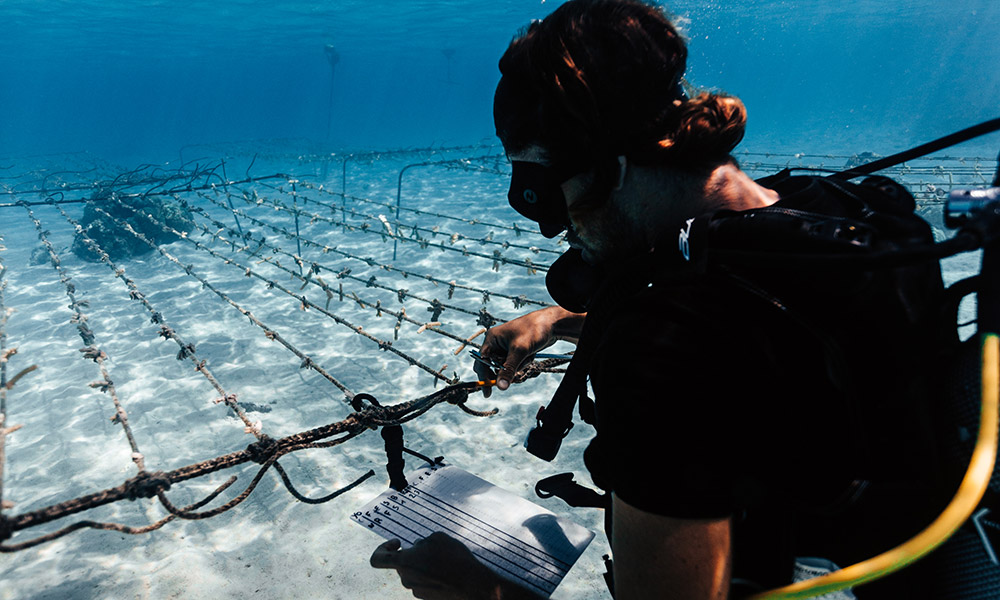
What are your plans to expand beyond French Polynesia?
We’ve set the goal for ourselves to plant 1 million corals around the world before 2025 and open 20 new locally managed Coral Gardeners locations worldwide, such as Indonesia, Maldives, Philippines, Hawaii, basically everywhere the reef needs us!
How can people get involved in the work you’re doing?
The best way people can help in ensuring we reach our goals to save the reefs is to simply adopt corals on our website www.coralgardeners.org. We have 10 different types of super corals all ranging from AUD $40 (25 Euros) and an entire rope nursery for AUD $4,000 (2,500 Euros). People can also make direct contributions to our NGO and help fund the science and innovation programs so we can expand on our research and centres.
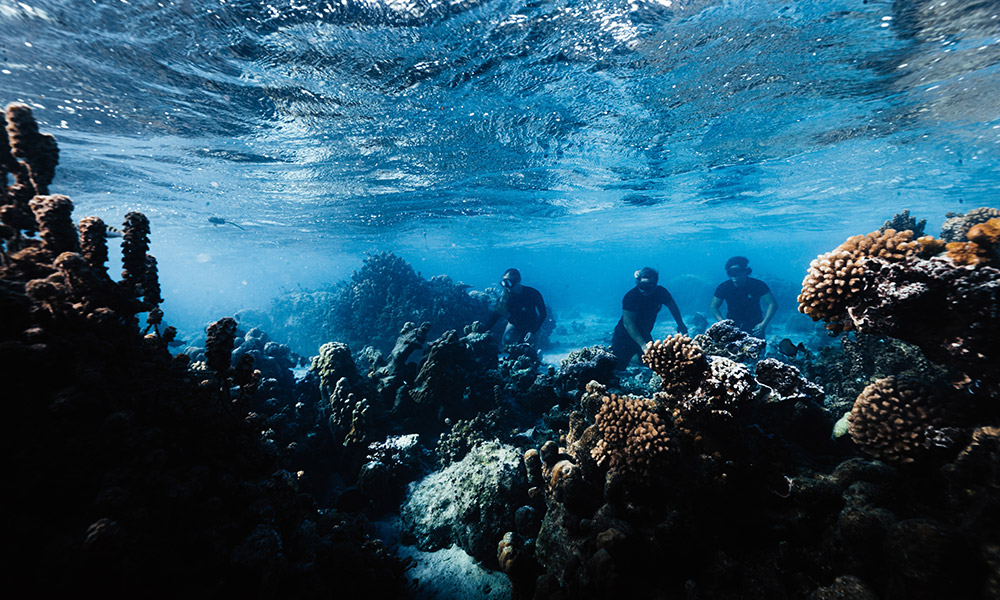
What do you enjoy most about life in French Polynesia?
Nature is everywhere on the island. We are so lucky to have access to what is arguably the most beautiful lagoon just a few metres from our houses, where we can swim with incredible creatures: sharks, turtles, rays, a wide range of different types of fish etc. And we are surrounded by beautiful mountains. The Islands of Tahiti is like a big playground, it gives us so much. We have to protect it.
When travel resumes, what are some of the local dive sites you recommend people visit?
Around Moorea, I would recommend visiting Temae public beach, there is a lagoon with a beautiful reef ecosystem there. In other parts of French Polynesia, places like Fakarava and Rangiroa have many dive sites that are for sure worth the trip. Fakarava is also protected since it’s a UNESCO biosphere and has a beautiful underwater world.
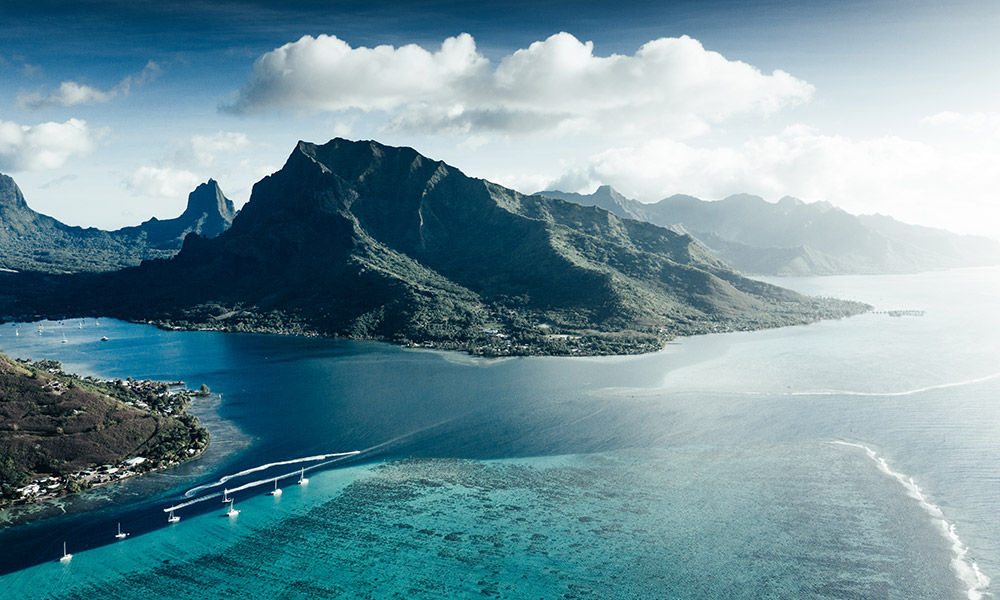
To donate to the Coral Gardeners, visit coralgardeners.org
To find inspiration for your next trip to The Islands of Tahiti, visit tahititourisme.com.au


